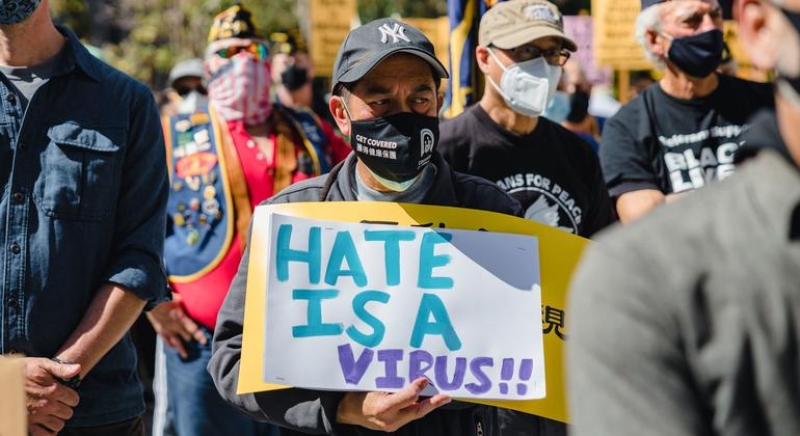- Intimidation or bloodshed cannot halt Bangladesh’s march to democracy |
- Khaleda Zia integral to an important chapter in BD history: Yunus |
- Enthusiasm marks Victory Day celebrations across Bangladesh |
- Dhaka-Delhi ties deep; to be shaped by trust, dignity, mutual respect |
- EU deploys election observation mission to Bangladesh |
Hate speech a warning sign of rising violence: Guterres

Demonstrators march in the United States to protest against hate speech and promote tolerance.
Hate speech is both a warning sign and a driver of violence, UN Secretary-General António Guterres said ahead of Wednesday’s International Day for Countering Hate Speech.
“It is an alarm bell: the louder it rings, the greater the threat of genocide,” he warned.
As part of its core mission to combat hatred, discrimination, racism, and inequality, the UN is intensifying efforts to challenge hate speech wherever it appears.
“Hate speech is poison in the well of society. It has paved the way for violence and atrocities during the darkest chapters of human history,” Mr. Guterres added.
Voices of Hate
Hate speech frequently fuels violence and intolerance, often targeting ethnic and religious minorities.
While the destructive power of hatred is not new, it is now being amplified by modern communication technologies.
Online hate speech has become one of the most widespread tools for spreading divisive narratives, posing a growing threat to global peace and security.
#NoToHate Campaign
Ahead of the international day, the UN released a series of videos as part of its #NoToHate campaign, aimed at countering hate speech.
Artificial Intelligence
This year’s theme focuses on the link between hate speech and artificial intelligence. Building coalitions is key to reclaiming inclusive, safe spaces free from hatred.
While AI offers vast potential to positively influence conflict and insecurity, it also carries risks. Biased algorithms and digital platforms can spread toxic content and open new avenues for harassment and abuse.
Recognizing both the promise and danger of AI, UN Member States have reaffirmed their commitment to countering online hate speech.
“Let us commit to using artificial intelligence not as a tool of hatred, but as a force for good,” said Mr. Guterres.

